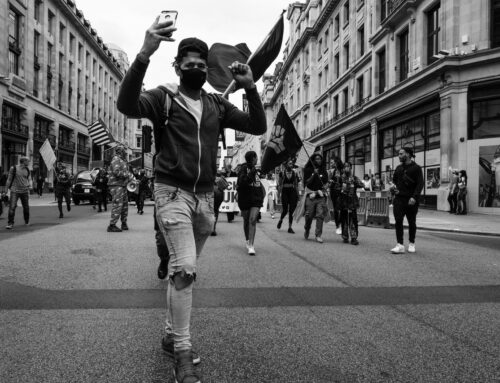Under the Prevention of Social Housing Fraud Act 2013, right to buy fraud happens when a person may apply for a discount to purchase their the home in which they are a tenant, and:
Gives false information
Unlawfully applies for the discount where the property has been subject to tenancy fraud such as sub-letting (all or part)
Has entered into an agreement with a third party to buy the property on their behalf (usually for a cash incentive)
There are companies and individuals that offer tenants money to apply to buy the home on behalf of the tenant. However, some tenants have ended up homeless through this. If a tenant enters into this type of agreement, they will have to repay the discount and the Council may refuse to provide them with another tenancy. Of course any money that they were given to make the application is unlikely to be enough to buy another home.
It is tempting but unethical and illegal. Right to buy schemes are to assist people who would otherwise rent council properties through their lives, the chance to become homeowners.
But with maximum discounts on offer up from £16,000 in some areas to a maximum of £77,900 across England (rising to £103,900 in London), this has proven very tempting for those seeking to acquire property at low prices to let out as landlords or to sell for profit. A Radio 4 investigation in 2016 revealed 721 of 4,538 Right-to-Buy sales conducted by ten authorities were to tenants on housing benefit who were unlikely to be able to afford such a purchase and in 2017 The Guardian reported 4 out of 10 right to buy homes are now owned by private landlords.
The number of sales, meanwhile, more than doubled from 2,638 from 2011/2012 to 11,465 in 2017/18.
As Airbnb listings in London soar to 80,000, up 400% from 2015 figures, Westminster Council is cracking down on those who use the site to unlawfully sublet social housing, with over 1,500 investigations underway.
The council recovered £100,974 from a social housing tenant who had been unlawfully letting his flat on Airbnb since 2013. He has also been evicted so the flat can be let to someone in genuine need. Last year, Westminster Council recovered 24 homes from unlawful sub-letters.
Other Councils throughout the country are taking similar actions.
As well as the offences under the Prevention of Social Housing Fraud Act 2013 A different, a more serious offence is committed if one acts dishonestly.
The law says that it is a defence if the sub-letting takes place as a result of violence or threats toward certain people. A further defence may arise if the person then occupying the house is entitled to apply to the court for a right to occupy or to have the tenancy transferred.
A person convicted of one of these offences is liable to a fine and, if they act dishonestly, could face six months in prison.
They are also liable to a new type of order introduced in the Act, an Unlawful Profit Order.
If a person is convicted of an offence under section 1 or 2, the Court MUST:
(a) decide whether to make an unlawful profit order (even if no application is made)
(b) may, if it considers it appropriate to do so, make such an order, instead of or in addition to dealing with the offender in any other way.
An application may also be made to the High Court or County Court for a civil order even where no criminal charges are brought.
The maximum amount payable under an Unlawful Profit Order is the illicit amount received by the offender minus any rent paid to the landlord. The court may make an order for payment of any amount up to that ceiling, depending on the offender’s current means.
For those involved in persuading tenants to buy properties, if it can be shown that they have acted fraudulently or conspired to commit crime, they too could face prosecution and potentially be forced to repay any criminal monies made, pursuant to a Proceeds of Crime Act Order.
Contact Us
Related Blogs
Registered Office : Queen’s Chambers, 5 John Dalton St, Manchester M2 6ET | Authorised and Regulated by the Solicitors’ Regulation Authority | 3D Solicitors Ltd : Company Number 10553315 SRA Number 636106

